Creyos Assessments
Creyos Online Assessments provide data-driven results to provide comprehensive diagnosis on a variety of brain functions.
Physical health measurements like blood pressure, heart rate variability, and blood sugar levels are vital in determining the state of our physical well -being. When our health changes, these measures become even more important, enabling us to detect early signs of health decline, and begin the plan and actions required to return us to good health.
Until now, there has not been a standardized method for quickly measuring core brain functions, such as memory, reasoning, verbal ability and concentration.
Creyos helps solve this problem by giving you and your Certus Care Provider a simple and scientifically-validated cognitive assessment platform to objectively measure and monitor your brain’s health!
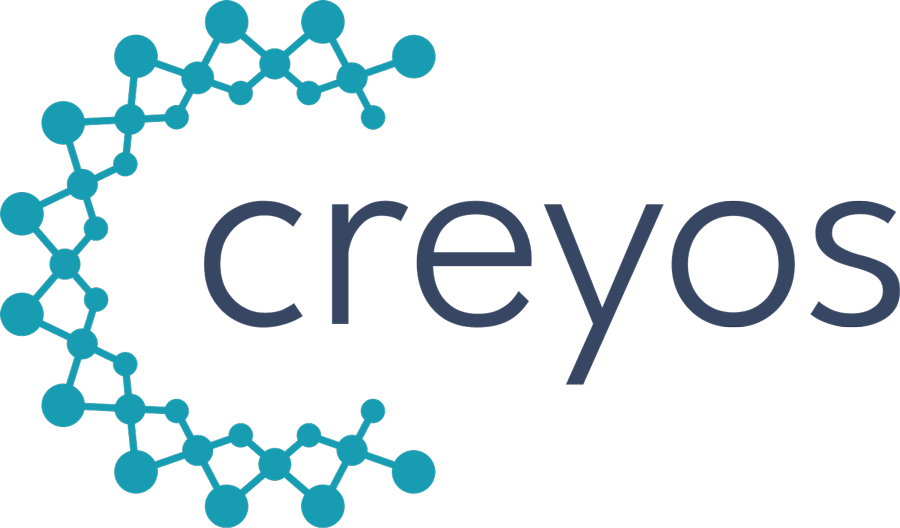
From a computer, you’ll complete a series of scientifically-validated game-like cognitive tasks that take up to 3 minutes each to complete. When you’re done, a report will be instantly generated and available for your Certus Care Provider to review with you.
What does Creyos measure?
Deductive reasoning is the ability to apply rules to information in order to arrive at a logical conclusion. This ability is often used in scenarios such as evaluating a complex argument and deciding if you agree, or solving everyday math problems, such as splitting the bill at a restaurant.
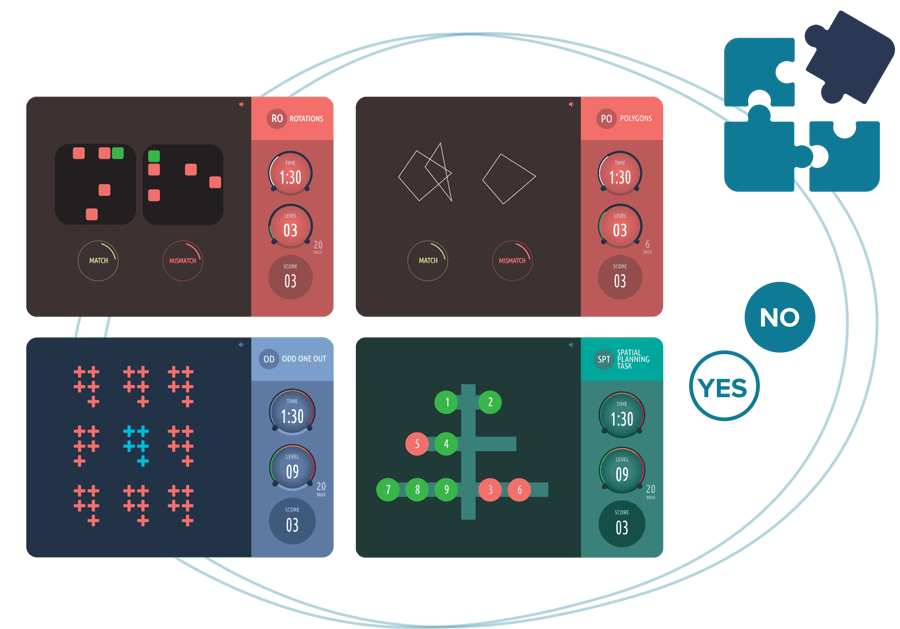
Planning is the ability to the ability to sequence behavior in an orderly fashion to reach specific goals. This ability is often used in scenarios such as deciding the order of items to pack in the trunk of a car, or organizing your schedule to effectively balance work, chores, and social life.

Visuospatial processing is the ability to effectively process and interpret visual information, such as complex visual stimuli and relationships between objects. This ability is often used in scenarios that require precise assessment and reasoning about objects, such as constructing models.

Mental rotation is the ability to manipulate mental representations of objects in order to make valid conclusions about what objects are and where they belong. This ability is often used in scenarios involving assembly, such as. building a deck, putting or planning a new layout for a room.

Working memory is the ability to temporarily hold information in memory and manipulate or update it based on changing circumstances. This ability is often used in scenarios such as systematically searching for a lost item, and keeping in memory places you’ve already searched, so that you do not search in that same place again.
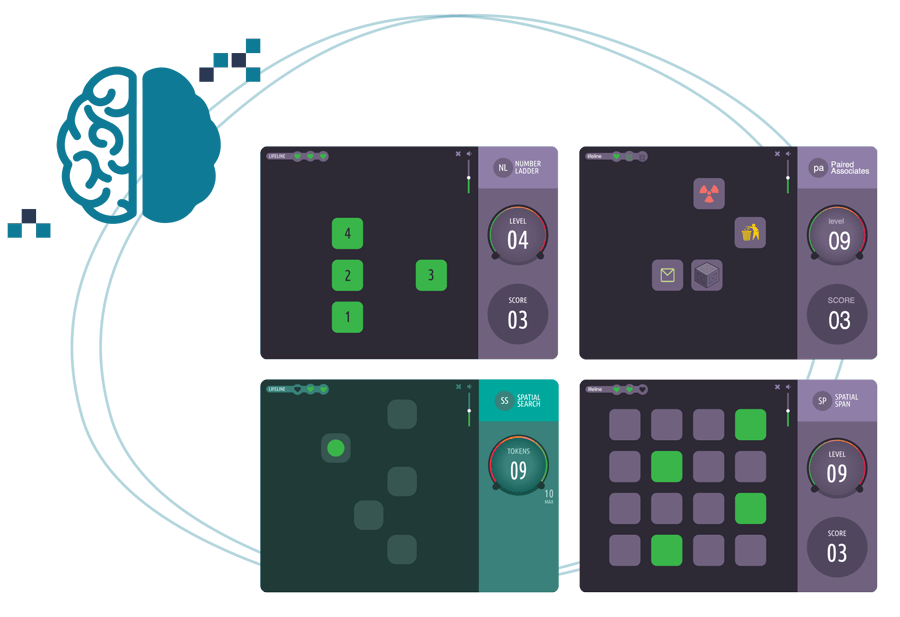
Episodic memory is the ability to remember and recall specific events, paired with the context in which they occurred. This ability is often used in scenarios such as remembering which cupboard you put your groceries in, learning what each button does in a new app or device, or remembering who you talked to yesterday, and at what time.

Spatial short-term memory is the ability to temporarily store spatial information in memory. This ability isoften used in scenarios such as following a set of dance moves, or giving directions to someone for a route you just took.

Visuospatial working memory is the ability to temporarily hold information in memory, and manipulate it based on changing circumstances or demands. This task involves reproducing a set of relationships between objects in space. This ability is often used in scenarios such as planning your day and the errands you need to run, then carrying out those errands in the correct order by memory.

Attention is the ability to focus on relevant details or differences, This ability is often used in scenarios such as staying focused on a task when it counts (like driving), identifying similarities and differences when comparing two things, or noticing small interpersonal details, like a partner’s haircut.
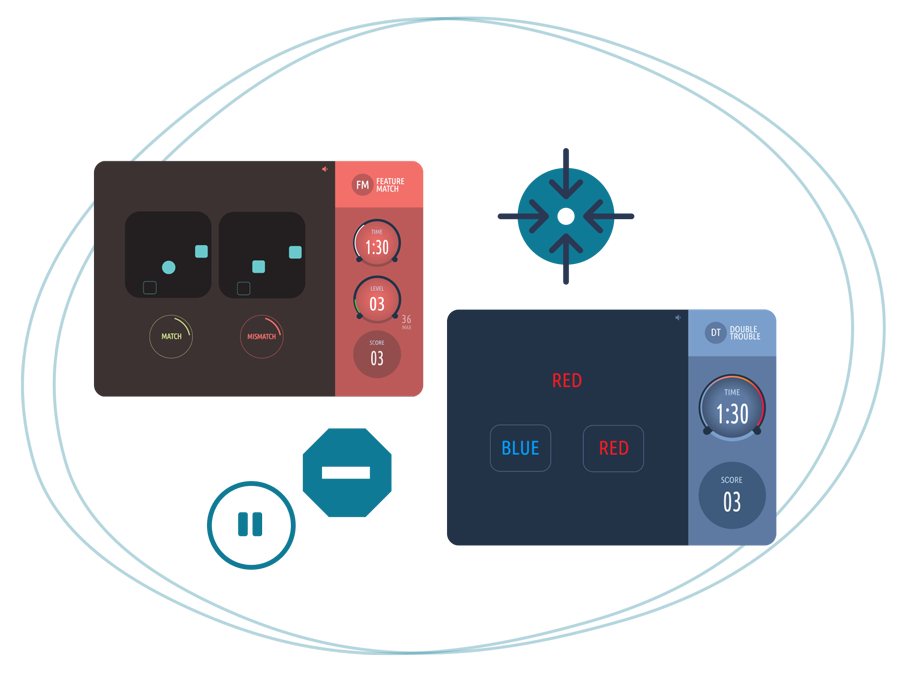
Response Inhibition ls the ability to concentrate on relevant information in order to make a correct response despite interference. This ability is often used in scenarios such as keeping your eyes on the road when driving despite passing distracting signs or people, or inhibiting your emotional gut reaction to a social media post to formulate a more rational answer.

Verbal short-term memory is the ability to hold information in mind and verbally rehearse it for as long as necessary. This ability is often used in scenarios such as understanding long sentences by remembering the beginning of the sentence by the time you get to the end, or writing down a phone number or entering in credit card information from memory.

Verbal reasoning is the ability to quickly understand and make valid conclusions about concepts expressed in words. This ability is often used in scenarios such as understanding complex every speech – e.g., “I didn’t know that he wasn’t going to show up.”, or giving clear verbal or written instructions to people.
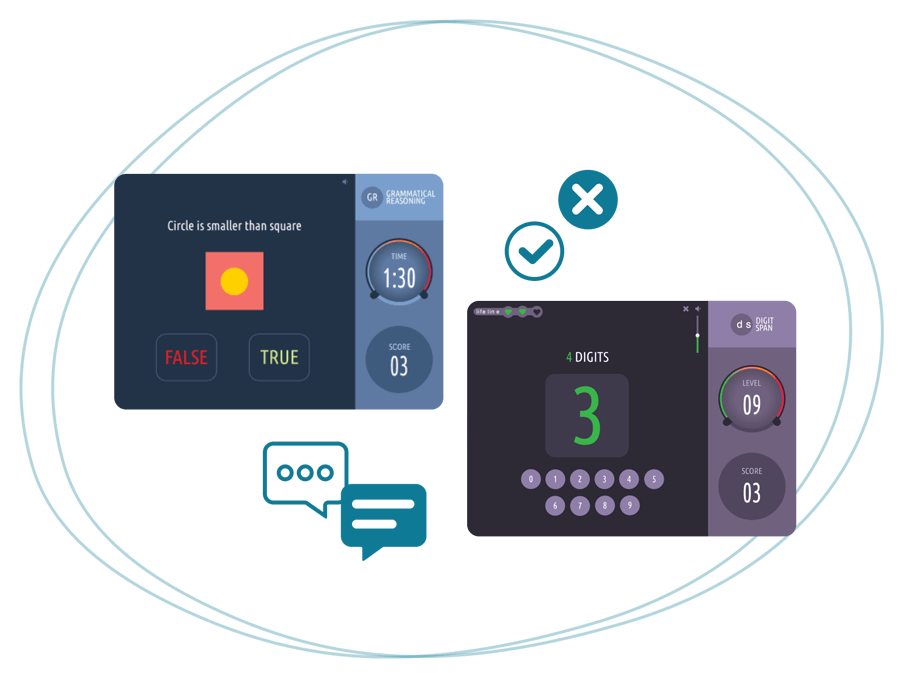
Cognitive assessments are for everyone – whether you’re recovering from a brain injury, have been diagnosed with a mental health condition, or are simply seeking ways to maintain or optimize your brain’s performance. Measuring your cognition will give you and your Certus Care Provider insights that enable you to take the steps you need to improve your quality of life.
Schedule a consultation to get started!

Winston-Salem Office
1255 Creekshire Way
(between Brixx and Firebirds)
Two Convenient
Locations!
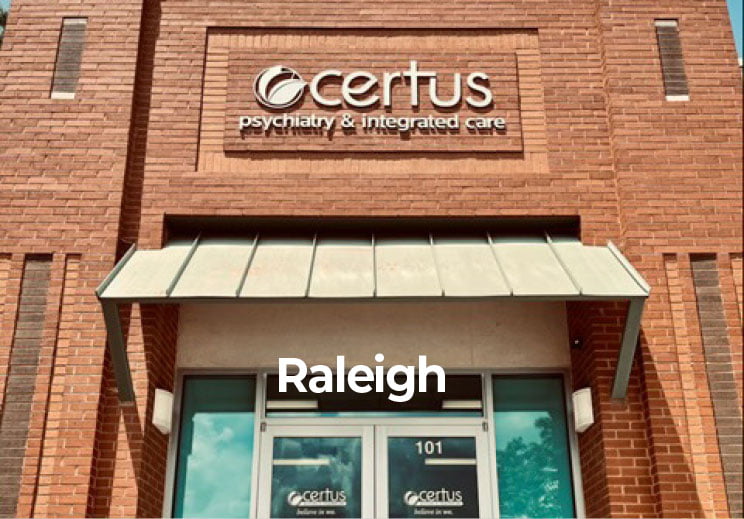
Raleigh Office
1350 Sunday Drive
Suite 101

